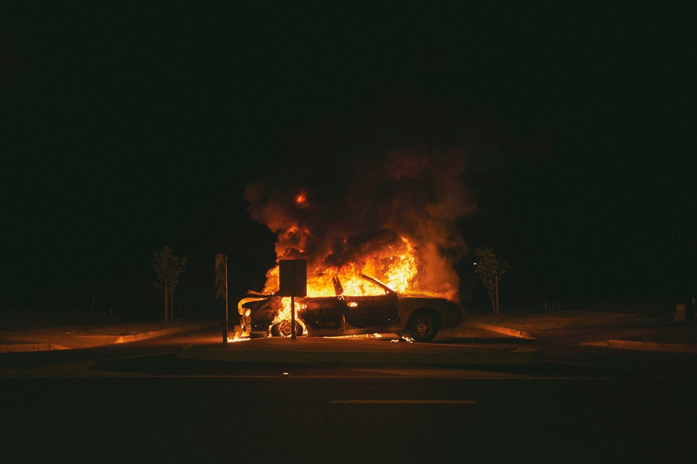The Growing Risk of Lithium-Ion Battery Fires – How Can the Motor Trade Stay Safe?

As the automotive industry transitions towards electrification, motor traders, dealerships and repair centres are facing new challenges—one of the most pressing being the risk of lithium-ion battery fires.
A recent warning from Allianz UK highlights the dangers associated with damaged, mishandled or improperly stored EV batteries. While electric vehicles (EVs) are statistically less likely to catch fire than petrol or diesel cars, the fires that do occur are far more intense and difficult to extinguish, posing significant risks to human safety, the environment and property.
The Hidden Threat: Thermal Runaway
Lithium-ion batteries power everything from EVs to power tools, but they come with an inherent risk—thermal runaway. This occurs when a battery overheats uncontrollably, leading to fires that can erupt days or even weeks later. In some cases, these fires have resulted in multi-million-pound damages, with entire buildings rendered beyond repair.
Two recent incidents cited by Allianz involved faulty EV batteries stored at motor trade premises awaiting manufacturer inspection. These fires led to insurance claims of £5 million and £1.5 million, underscoring the severe consequences of improper handling. Even small lithium-ion batteries can pose a risk—one fire at a tyre fitting centre was traced back to a power tool left charging, resulting in a £250,000 claim.
Why Motor Traders Are at Higher Risk
Businesses that handle high volumes of vehicles, such as franchised dealers, repair shops and recovery operators, are particularly vulnerable. Many EVs entering workshops today are subject to recalls, advisory notices or visible battery defects, increasing the likelihood of an incident.
As EV adoption accelerates, so too does the need for strict safety protocols. Allianz recommends:
• Rigorous inspection procedures for any battery showing damage or faults.
• Proper storage and charging practices to minimise fire risks.
• Collaboration with insurers and risk management experts to develop preventative strategies.
How Recyclus Group Is Supporting Safe Battery Management
At Recyclus Group, we are committed to providing safe and sustainable lithium-ion battery recycling solutions. As the UK’s first industrial-scale lithium-ion battery recycler, our LiBatt facility is permitted to process 22,000 tonnes of lithium-ion batteries annually. Our certificated destruction process provides a cradle-to-cradle solution, helping OEMs reduce their carbon footprint by eliminating the need for international disposal.
With proprietary technology and full ownership of both the process and IP, our in-house design and manufacturing capabilities enable us to offer tailored, agile services that enhance operational efficiency.
Our LiBox offers a controlled environment for managing damaged, defective or end-of-life batteries, reducing the risks of thermal runaway and ensuring safer disposal for businesses. This pallet-sized, steel-fabricated box is UN-certified, ADR-compliant, and rated to a 20kWh power capacity—the highest in the industry. Lined with Lithium Battery Fire Protection Pillows, it is specifically designed to contain and extinguish fires.
With the rise of EVs and battery-powered tools, risk awareness and proper management are no longer optional—they are essential. By adopting best practices and working with expert partners, the motor trade can navigate these challenges safely and ensure a more secure transition to an electrified future.
Want to learn more about safe lithium-ion battery recycling? Get in touch with our team today.
